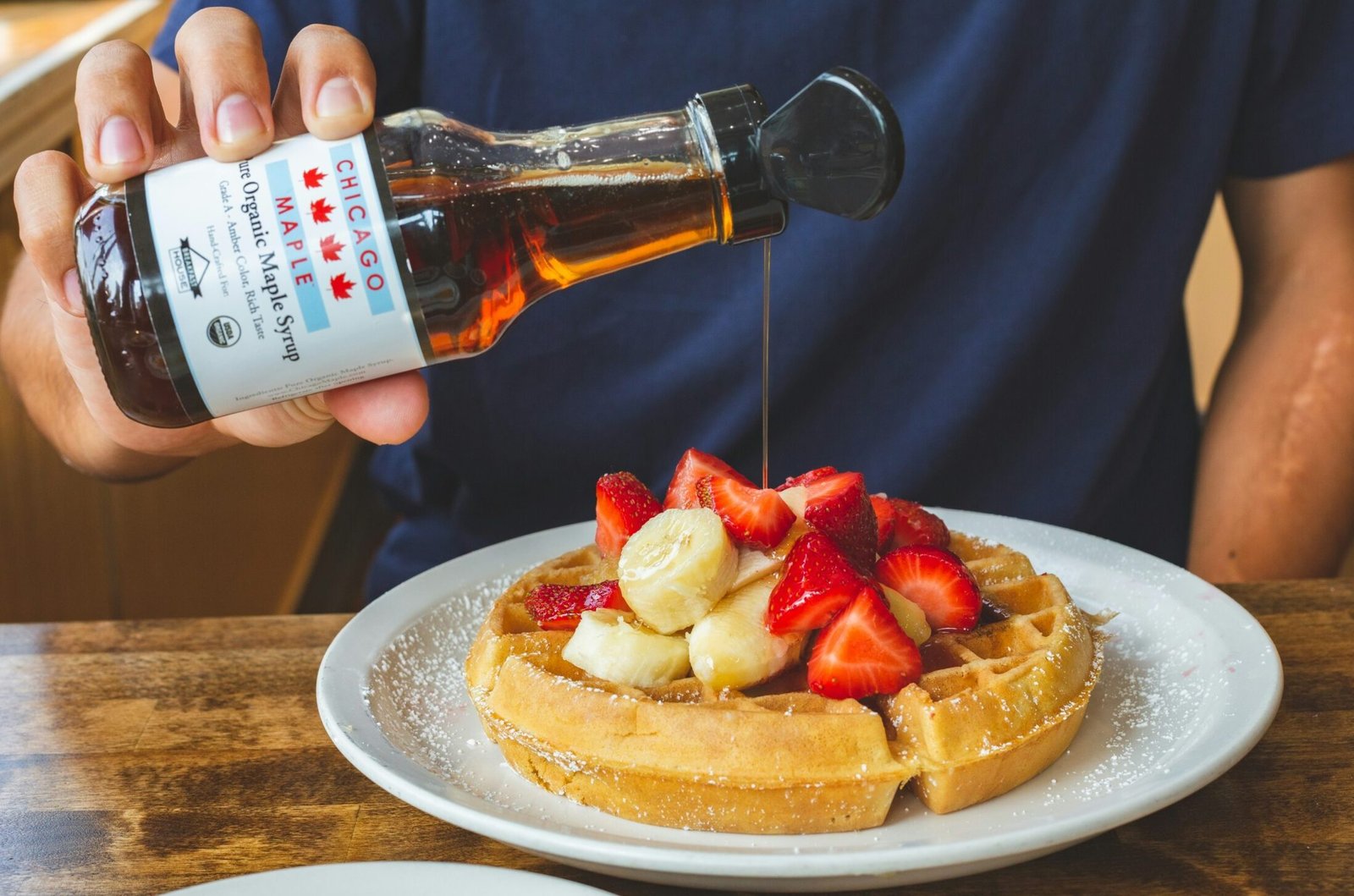
The dos and don’ts of weight loss have led many people to make the wrong choices to achieve their body goals. Weight loss myths and misconceptions tend to spread faster than life-changing nutrition facts, making it hard for interested parties to identify what’s best for them.
Undeniably, some weight loss myths are detrimental to individual health and well-being. Not only that, they result in most people giving up on their weight loss goals. This is why it is crucial to scrutinize any weight loss opinion you come across to keep track of your body goals.
Based on our experience and research, here are ten weight loss myths you should reconsider.
Myth 1: Counting Calories is A Must
Tracking calorie intake is a nutritional concept that has been around for years. At one point, this used to be a useful weight loss tip until it was considered otherwise. This is because calories are not the only contributing factor to retaining unhealthy weight.
Focusing on calories solely is one way to overlook the nutritional value of food.
Instead, consider the quality of your calories. These include carbs with a low glycemic index, fruits and vegetables, whole grains, soy products, and proteins like lean meat. They contain essential vitamins and minerals that can keep your gut healthy and directly affect your weight.
On the other hand, calorie-dense foods with high glycemic index are poor in nutrients, which can significantly contribute to weight gain and poor health. Monitoring the types of carbs, proteins, and fat you eat is a critical factor in losing weight rather than merely counting the total calories.
Myth 2: Maintaining A Low-Carb and Low Fat Diet is Key
Eliminating certain carbs or fats to lose weight is something you’ve heard countless times. Carbs are a primary energy source. You need healthy fats for brain function, nutrient absorption, and hormone production. A balanced diet, including various foods from the three groups, is mandatory for long-term weight loss.
Extreme diets eliminate essential foods needed to maintain a healthy weight and good health. Such diets are hard to follow and are likely to deprive your body of vital nutrients, making it even harder for the body to burn extra fat.
Myth 3: Smoothies and Fruit Juices Will Save Your Day
Smoothies and fruit juices are part of a healthy diet. However, they do little to help with weight loss. Unless you make them at home with fresh ingredients and little to no added sugars, you can never be sure about what you’re drinking.
Store-bought smoothies and juices are high in calories and sugar. They can significantly hinder weight loss.
It is always better to consume whole fruits and vegetables, which have high fiber content and are more satiating than buying smoothies. If you prefer to make them at home, use fresh, whole ingredients and limit added sugars if possible.
Myth 4: Eat When Hungry
Eating only when hungry when monitoring your weight has its downside, too. Waiting until you feel starving to eat is a risk factor for overeating and poor diet choices. You may feel the urge to make up for the hunger or even eat more than needed to keep up with your energy level.
Alternatively, eating regularly throughout the day to maintain your energy levels is ideal for avoiding excessive hunger. Plan balanced meals and snacks throughout the day to manage your hunger levels, thereby monitoring the quantity of food you eat, directly affecting your weight.
Myth 5: Keep Caffeine Away
While drinking coffee has side effects, it also has benefits. Caffeine is a stimulant, and can make you eat less than you would have otherwise. In addition, caffeine intake can aid weight loss by boosting physical performance and overall metabolism.
If anything, watch out for caffeinated beverages loaded with sugar and excess cream. These promote high insulin secretion, preventing the body from burning stored fat.
However, consuming caffeinated beverages with sugar and cream can add unnecessary calories. Instead, go for plain coffee or tea if you’re mindful of your overall caffeine consumption to avoid adverse side effects like anxiety or disrupted sleep.
Myth 6: Eat Less of Everything
Eating less is an essential strategy for weight loss. But slashing down the amount of every type of food you eat can be a fatal strategy. It could lead to nutrient deficiency and slowed metabolism.
It’s essential to focus on the quality of your diet rather than just the quantity of the food. Eat nutrient-dense foods in appropriate portions to give your body enough nutrients to function correctly, including burning stored fat and maintaining a healthy weight.
Myth 7: Skipping Meals Can Help You Lose Weight
Skipping meals is a risk factor for overeating since the brain may trick you into thinking you are not full. It is highly recommended to eat regular meals and snacks throughout the day to keep your blood sugar levels stable and prevent extreme hunger.
Instead of skipping meals, focus on eating balanced meals that include a mix of protein, healthy fats, and complex carbohydrates that will sustain your energy levels throughout the day.
Myth 8: Dieting is The Only Way Out
Relying on a strict diet for weight loss can be unsustainable over the long haul, especially if you need to improve your eating habits. This can lead to a yo-yo cycle of dieting that may be detrimental to your health.
Long-term weight management is better achieved through sustainable lifestyle changes, including regular physical activity and a balanced diet. To experience a more successful weight loss outcome, you need to build a positive relationship with food and know the right foods to eat throughout the day.
Myth 9: You Need A Strong Willpower
Willpower plays a role in weight loss but is not the only factor involved. Your environment, habits, and psychological factors significantly affect your eating behaviors.
The goal is to set up a supportive environment, nurture healthy habits, and address emotional issues that affect your eating patterns. Instead of relying solely on willpower, you can seek support from friends, family, or professionals to enhance your weight loss journey.
Myth 10: Do Away with All Your Favorite Foods
Eliminating each of your favorite foods can make you relapse. Doing this makes dieting feel like a punishment that you need to serve and can cause excessive cravings that could promote beige eating.
Better practice moderation, which creates room for occasional treats. Nutrition experts recommend including favorite foods in your diet or “cheat days.” This is a healthy way to enjoy eating without feeling guilty while working towards your weight loss goals.
Summary
Weight loss is a complex and individualized process. It goes beyond simple solutions and quick fixes. By debunking these common myths, you can make more informed choices that support your health and weight loss goals.
Focus on balanced nutrition, regular physical activity, and sustainable lifestyle changes for long-term success. Remember, the journey to a healthier you is a marathon, not a sprint.
- Top 10 Weight Loss Myths Debunked - August 15, 2024
- Beef and Vegetable Stew - May 8, 2024
- 5 Minute Smoothie Recipe: A Must Try Smoothie - May 2, 2024








34 comments
Yönlendirme spamı Google SEO sayesinde müşteri memnuniyetimiz arttı. https://www.royalelektrik.com/beylikduzu-elektrikci/
süpürge tamir uzmanı Yedek parçalar için uzun süre beklemem gerekmedi. https://melaninbook.com/read-blog/43977
Ümraniye süpürge servisi garantisi İşçilik garantisi vermeleri içimi rahatlattı. http://blog.bestdotnettraining.com/question/elektrikli-supurge-tamiri/
süpürge tamir ve bakım Ümraniye Orijinal parça kullanmaları güven verdi. https://social.urgclub.com/read-blog/209147
İstanbul tesisat su kaçağı tespiti Beşiktaş’ta su kaçağı tespiti için kesinlikle doğru adres! Profesyonel hizmet. https://www.vevioz.com/ustaelektrikci
akustik su kaçak bulma cihazı Şişli’deki evimdeki su kaçağını hızlıca tespit ettiler. Çok memnun kaldım. https://facekindle.com/ustaelektrikci
Avcılar su kaçağı tespiti Beykoz su kaçağı tespiti: Beykoz’da su kaçağını garantili şekilde tespit ediyoruz. https://suomennbaseura.com/ustaelektrikci
İcadiye su kaçak tespiti Başakşehir su kaçağı tespiti: Başakşehir’de su kaçağı tespitinde uzman ekibimizle yanınızdayız. https://www.messifootballforum.com/ustaelektrikci
İstasyon su kaçak tespiti Göztepe’deki evimizdeki su kaçağını hızlıca buldular ve onardılar. Çok memnun kaldık. https://fatshipresident.net/ustaelektrikci
Çatalca su kaçağı tespiti Yüksek teknolojili ekipmanları sayesinde kısa sürede tespit yapabildiler. https://www.4yo.us/ustaelektrikci
Kısıklı su kaçağı tespiti Kadıköy’deki işyerimdeki su kaçağını çok kısa sürede tespit ettiler. Kesinlikle tavsiye ederim. https://kansabook.com/ustaelektrikci
Acıbadem su kaçak tespiti Çekmeköy su kaçağı tespiti: Çekmeköy’deki su kaçakları için profesyonel hizmet. https://bayer04leverkusenfansclub.com/ustaelektrikci
Sırapınar su kaçak tespiti Başakşehir su kaçağı tespiti: Başakşehir’de su kaçağı tespitinde uzman ekibimizle yanınızdayız. https://social.kubo.chat/ustaelektrikci
Esenler su kaçağı tespiti Sarıyer’deki villa için profesyonel su kaçağı tespiti hizmeti aldık, kesinlikle öneririm. https://atleticomadridfansclub.com/ustaelektrikci
Taşdelen su kaçak tespiti İlk kez bu kadar hızlı bir hizmet aldım, tavsiye ederim! https://chiefaiexpert.com/ustaelektrikci
Anadolu Yakası su kaçak tespiti Ekibin bilgisi ve tecrübesi gerçekten etkileyici. https://ekcochat.com/ustaelektrikci
Sultanbeyli su kaçak tespiti Zeytinburnu’nda su kaçağı tespiti için çok iyi bir ekip. Sorunumuzu hemen çözdüler. https://ceskanaike.com/ustaelektrikci
Eyüp su kaçağı tespiti Hizmetlerinden çok memnun kaldım, herkese öneririm. https://kiigasofthub.com/ustaelektrikci
Kağıthane su kaçak tespiti Kağıthane su kaçağı tespiti: Kağıthane’deki su sızıntılarına anında çözüm. https://leenkup.com/ustaelektrikci
Alibeyköy su kaçak tespiti Beyoğlu’ndaki evimdeki su kaçağını bulmaları çok zor oldu ama cihazları çok etkiliydi. https://melaninbook.com/ustaelektrikci
Hi! Do you know if they make any plugins to protect against hackers? I’m kinda paranoid about losing everything I’ve worked hard on. Any recommendations?
Yayla su kaçak tespiti Evimde su sızıntısı olduğunu bile fark etmemiştim, hızlıca buldular! https://ulystar.in/ustaelektrikci
hızlı su kaçak tespiti Mutfak tezgahının altındaki su kaçağını tespit etmek için geldiklerinde çok titiz davrandılar. Fayanslarıma zarar vermeden sorunu çözdüler. Mehmet S. https://matchpimp.com/ustaelektrikci
Küçüksu su kaçak tespiti Tuvaletteki gizli kaçağı kameralı sistemle buldular. Fayansları kırmadan tamir ettiler. Zerrin X. https://www.debwan.com/ustaelektrikci
Ümraniye petek dezenfeksiyon Petek temizliği yaptırdıktan sonra ısınma sorunlarımız çözüldü. Teşekkürler Ekip Tesisat! https://www.historicar.be/fr/question/umraniye-petek-temizligi/
Ümraniye profesyonel bakım Ümraniyede petek temizliği için en iyi tercih Ekip Tesisat. Sorunsuz hizmet alabilirsiniz. https://9unity.com/read-blog/10
Ümraniye çevre dostu temizlik Ümraniyede petek temizliği için en iyi tercih Ekip Tesisat. Sorunsuz hizmet alabilirsiniz. https://www.nitrnd.com/blogs/56662/%C3%9Cmraniye-Petek-Temizli%C4%9Fi
Choose BWER for trusted weighbridge systems in Iraq, offering customized solutions to optimize your industrial operations and ensure precise weight measurement every time.
Arnavutköy su kaçak tespiti Üsküdar su kaçağı tespiti: Üsküdar’da su kaçağı tespiti hizmeti ile güvenli tesisatlar. https://outhematrix.info/ustaelektrikci
cihazla su kaçak tespiti Hijyenik Çalışma: Çalışma sırasında her yere dikkat ettiler, oldukça hijyenik bir hizmet sundular. https://www.scenario.press/ustaelektrikci
https://www.zkusadasiescort.com/ You will definitely earn Immediately – Those who rush always lose, this word reeks of desperation.
Yüksek gelir https://www.corpescort.com/ 100% başarı – Hiçbir şeyde yüzde yüz garanti olmaz.
Yenimahalle su kaçak tespiti Evimdeki su kaçağı sorununu hızlıca çözdüler, gerçekten profesyonel bir ekip! https://harbornaz.org/author/kacak/
What¦s Happening i am new to this, I stumbled upon this I have discovered It positively helpful and it has aided me out loads. I hope to contribute & aid different users like its aided me. Great job.